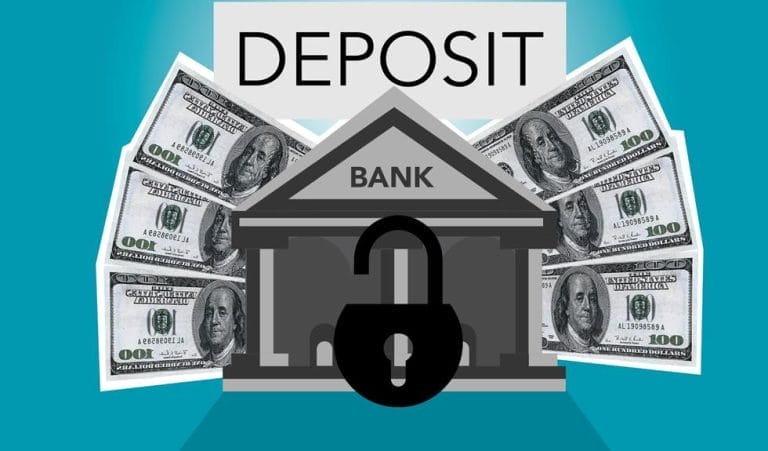Looking to level up your small business success? Look no further than expense tracking. By keeping a keen eye on your business expenses, you can gain valuable insights and make smarter decisions.
In this article, we’ll delve into the benefits of expense tracking for small businesses and equip you with tips and tools to streamline the process.
Discover how tracking expenses can optimize tax deductions, enhance cash flow management, and improve budgeting capabilities. We’ll also explore the importance of setting up a separate business bank account, using expense-tracking software or spreadsheets, and maintaining detailed records and receipts.
With the right strategies and tools in place, you’ll be on your way to financial control and greater success in your small business.
Key Takeaways
- Tracking expenses for small businesses can help maximize deductions and reduce tax liability.
- Accurate expense tracking improves financial decision making and cash flow management.
- Setting up a separate business bank account is important for tracking and recording business transactions.
- Utilizing expense-tracking software or spreadsheets, along with regular reviews and reconciliations, can help maintain detailed records and receipts.
What Expenses to Track for Small Businesses
To effectively track your small business expenses, you should consistently monitor and record all operational expenditures, employee salaries, inventory purchases, travel expenses, office supplies, advertising and marketing costs, professional services fees, insurance premiums, and client entertainment expenses. By tracking these expenses, you can optimize your tax deductions and credits, saving you money in the long run.
Employee reimbursements, for example, can be deducted as business expenses, reducing your taxable income. Additionally, tracking your expenses allows you to accurately assess your business’s financial health and make informed decisions. It also enables you to properly allocate funds, ensuring that you have enough cash flow to cover your expenses.
Benefits of Expense Tracking for Small Businesses
Maximize your small business’s financial potential with effective expense tracking.
By diligently tracking your business expenses, you can unlock several benefits that will contribute to your overall success.
One significant advantage is maximizing deductions. By accurately recording your expenses, you can identify eligible deductions, which will reduce your taxable income and potentially lower your tax liability.
Additionally, expense tracking improves financial decision making. With a clear overview of your expenses, you can make informed choices about where to allocate resources, whether it’s cutting unnecessary costs or investing in areas that yield higher returns.
Tips for Accurate Business Expense Tracking
Boost your small business’s expense tracking accuracy by implementing these essential tips. To make your expense tracking more accurate, consider using automated tracking solutions and adopting paperless expense management. Here are some tips to help you track your business expenses accurately:
| Tips for Accurate Business Expense Tracking |
|---|
| Set up a separate business bank account |
| Audit and categorize expenses |
| Use expense-tracking software or spreadsheets |
| Regularly review and reconcile expenses |
| Keep detailed records and receipts |
Importance of a Separate Business Bank Account
One crucial step to accurately track your business expenses is to establish a separate business bank account. By having a dedicated account for your business finances, you can easily differentiate between personal and business expenses. This separation is essential for several reasons.
First, it allows you to accurately track and record all your business transactions, making it easier to categorize and analyze your expenses.
Second, it simplifies the process of preparing financial statements and tax returns, as you won’t have to sift through personal transactions.
Additionally, having a separate business bank account improves the credibility of your business, especially when dealing with clients or investors. It shows that you take your business seriously and are committed to maintaining proper financial records.
Tools for Small Business Expense Tracking
To effectively track your small business expenses, start by utilizing the right tools. There are several expense tracking software options available, each with its own features and benefits. Here is a comparison of some popular tools:
| Expense Tracking Tool | Key Features |
|---|---|
| Expensify | Receipt scanning and expense report generation to simplify expense tracking and reimbursement. |
| FreshBooks | Invoicing and expense tracking features combined in one platform for streamlined financial management. |
| Zoho Expense | Automated expense recording and approval workflows for efficient expense tracking and control. |
| Wave Financial | Free accounting software with expense tracking capabilities, suitable for small businesses on a budget. |
When choosing the right expense tracking tool for your small business, consider factors such as the size and complexity of your business, your budget, and the specific features you require. Take advantage of free trials or demos to test different software options before making a decision. By selecting the right tool, you can simplify your expense tracking process and improve the financial management of your business.
Strategies for Small Business Expense Tracking
To effectively track your small business expenses, you need to implement strategic methods that streamline the process and ensure accuracy.
Automating expense tracking is a key strategy that can save you time and reduce the risk of errors. By using expense-tracking software or tools like QuickBooks or Expensify, you can easily capture and categorize expenses, generate reports, and even integrate with your accounting system.
Another important strategy is the importance of record keeping. Keeping detailed records and receipts is crucial for accurate expense tracking and for potential audits. It allows you to track expenses, monitor spending patterns, and claim tax deductions.
Seeking Professional Advice for Expense Tracking
If you’re a small business owner looking to enhance your expense tracking practices, seeking professional advice can provide valuable insights and guidance. The importance of professional consultation can’t be overstated when it comes to effectively tracking expenses.
Professionals who specialize in expense tracking can offer expertise in areas such as tax deductions, cash flow management, and financial planning. They can help you identify the best software for expense tracking, which is crucial for accuracy and efficiency.
Some of the top software options for small businesses include HoneyBook + QuickBooks integration, Expensify, FreshBooks, Zoho Expense, and Wave Financial. These tools offer features like automated tracking, expense categorization, and detailed reporting.
With the guidance of a professional and the right software, you can streamline your expense tracking process and make informed financial decisions for your business.
Conclusion
In conclusion, implementing expense tracking in your small business can greatly contribute to your overall success.
By closely monitoring and managing your expenses, you gain valuable insights into your financial health and can make informed decisions to optimize tax deductions, improve cash flow management, and enhance budgeting capabilities.
With the right tools and strategies, you can take control of your finances and pave the way for greater success in your small business.






